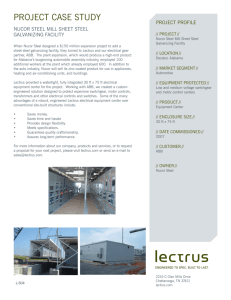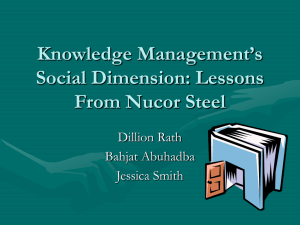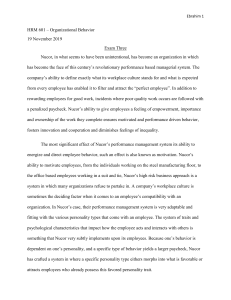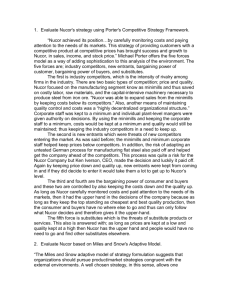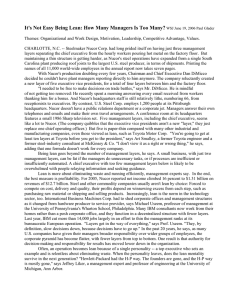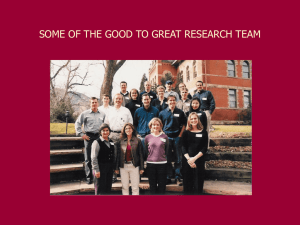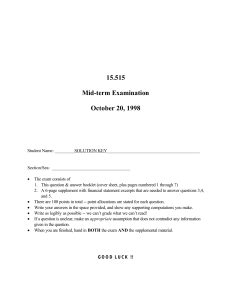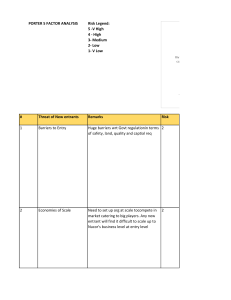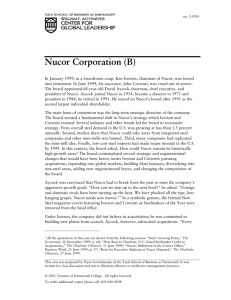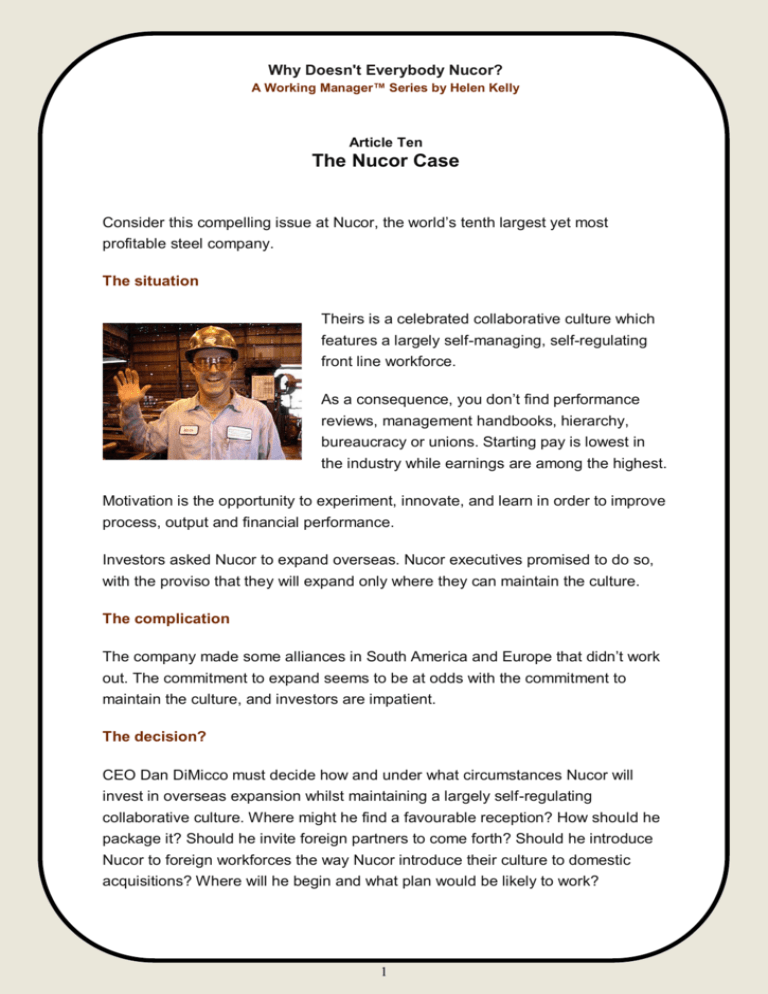
Why Doesn't Everybody Nucor?
A Working Manager™ Series by Helen Kelly
Article Ten
The Nucor Case
Consider this compelling issue at Nucor, the world’s tenth largest yet most
profitable steel company.
The situation
Theirs is a celebrated collaborative culture which
features a largely self-managing, self-regulating
front line workforce.
As a consequence, you don’t find performance
reviews, management handbooks, hierarchy,
bureaucracy or unions. Starting pay is lowest in
the industry while earnings are among the highest.
Motivation is the opportunity to experiment, innovate, and learn in order to improve
process, output and financial performance.
Investors asked Nucor to expand overseas. Nucor executives promised to do so,
with the proviso that they will expand only where they can maintain the culture.
The complication
The company made some alliances in South America and Europe that didn’t work
out. The commitment to expand seems to be at odds with the commitment to
maintain the culture, and investors are impatient.
The decision?
CEO Dan DiMicco must decide how and under what circumstances Nucor will
invest in overseas expansion whilst maintaining a largely self-regulating
collaborative culture. Where might he find a favourable reception? How should he
package it? Should he invite foreign partners to come forth? Should he introduce
Nucor to foreign workforces the way Nucor introduce their culture to domestic
acquisitions? Where will he begin and what plan would be likely to work?
1
Studying cases: notes for team leaders and managers
Case Study method is a way to develop decision analysis and decision making
skill. You...
articulate the decision someone has to make
consider what information might inform the decision –
e.g. current, historical, financial, cultural
document your analysis – including the implications
for various decision options
decide and write a plan for next steps
The process is challenging and engaging. Success depends on time,
concentration, consultation and careful analysis. The key outcomes are improved
critical thinking ability and professional confidence.
Study Groups
Individuals can benefit from working the case alone, yet
the best return is on group work. If you are three or four,
study teams of two can work together, agree a solution,
and present to the other study team. If you are a large
unit, three to a study group produces good results.
Larger groups allow reticent people to hold back and wait for others to offer ideas.
Time
There is no optimum time period for coming to a decision, yet a meeting at least
once a week should allow productive results - as everyone has several hours each
week to work the case.
Work Plan
The important first step is to be thoroughly familiar with the facts, and to document
your initial thoughts. You will find details of case study process in the article, Note
on case analysis.
© 2008 The Working Manager Ltd www.TheWorkingManager.com all rights reserved
For information about this or other In Practice Series contact Helen Kelly,
International Editor Helen.Kelly@TheWorkingManager.com
2

